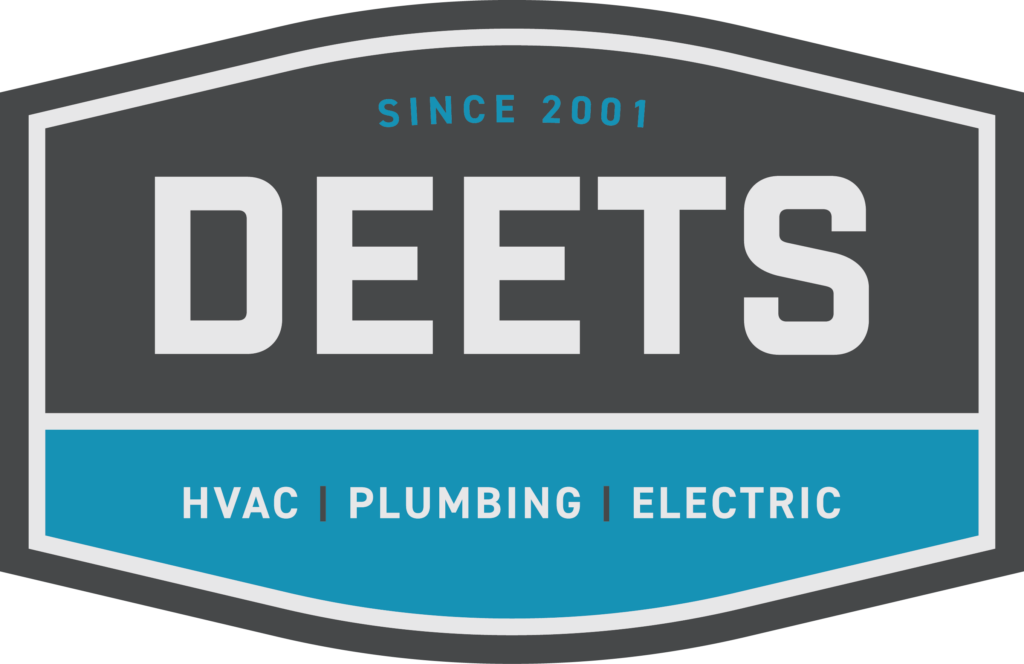“The 7 Biggest Mistakes People Make When Picking A Contractor And How To Avoid Them.”
Mistake #1 — You pick a contractor based only on price!
The old adage is really true. “You get what you pay for.” This is especially true in the contracting business. If you want good contracting you should decide to deal with a contractor because of the overall value you receive, NOT because they are the lowest priced.
Here’s why…Value = Quality + Service + Price
It is impossible for any company in any industry to offer the cheapest price, have the highest quality, and provide the best service all at the same time.
You can get high quality and super service, but you can’t get both and still get the lowest price.
Just like in your business, you hire the best people and buy the highest quality products — consequently, you have to charge more for your services.
Total Value is all three. Quality, Service, and Price!
The 3 most common problems YOU WILL have when you pick a contractor who only offers the lowest price:
1) The first problem is that dirt cheap contractors don’t usually stand behind their work if there is a mistake. Sure, other contractors might do your job for a little less money, but how will they treat you when there is a mistake with your job? To give the cheapest price, they usually have low-wage, inexperienced employees that have not been adequately trained. They also cut corners by using cheaper and lower quality equipment and materials to give that low price. The end result is that you get what you pay for. And the little bit of money you saved ends up costing you more in the long run! Believe me, this is a little saying we tell our customers: “The good feeling of a cheap price is long gone before the stench of poor quality is ever used up.”
2) The second problem with a contractor who offers the lowest price is that they tend to also offer the lowest quality. Your furnace and/or air conditioner is the biggest appliance in your home. And, one of the best investments you can make in your home if done properly.
Plainly said, “Shoddy or low quality contracting because of cheap price costs you money.” No amount of savings is worth this. You’ve worked too hard and spent too much money on your home. Why throw it away for the few pennies you save on a contractor?
3) And the third reason why picking the cheapest contractor is a problem is that you might get charged extra for things other contractors normally include in their quote in the first place. You’ll be charged extra for such things as filters, thermostats, overtime due to bad estimates. Cheap contractors nickel and dime you to death. What seemed like a good price actually ends up costing you more in the end. This is just a tactic cheap contractors use to get in the door.
To avoid buying on price alone, we suggest you choose two or three contractors and rank them in the order that is important to you such as Quality first, Service second, and Price last.
Mistake #2 — You Think All Contractors Are The Same.
Every contractor is different. No two contractors are really the same. Every contractor has different equipment and different employees who know how to do certain kinds of jobs well. Every company has a different number of employees, each with different abilities.
Contracting is art and craftsmanship combined. Most people who hire contractors don’t truly understand that despite all the technological advances, contractors still use the same quality work habits as twenty years ago.
Contrary to what a lot of people think, heating and cooling is not just banging on the furnace, changing filters or recharging air conditioners. It takes craftsmanship to turn out quality work. Contractors have to diagnose, measure and perform complicated calculations before they can start a job.
Communication is the key to picking the best contractor for YOU.
- Ask what type of work they do.
- Ask what their average turnaround time is.
- Ask if they work weekends.
- Ask any other questions that are unique to your needs.
This will help you decide whether they are the best contractor for YOU!
After you ask your questions, it will become pretty obvious which company you should choose. The company that wants your business will prove to you they are the best contractor to do your work. Take your time to decide which contractor you would like to use — but when you decide, you must be loyal to them (See Mistake #3).
Mistake #3 — You Always Have Three or More Contractors Competing With Each Other For Your Work.
You may think this is a good way to do business. And it is to some extent. But here is why it usually isn’t a good way to deal with contractors.
A good contractor has enough loyal customers that they don’t have to deal with price shoppers.
Once you find a good contractor, you must be loyal to them. If you flip-flop from contractor-to-contractor, a good shop won’t be too motivated to keep YOU as a customer.
Price is important. But price should not be more important than good quality and good service.
This is what people typically like to do. They try to get everyone fighting for the same piece of pie. This might be an OK short term strategy because you save a few bucks. But, when you need a favor, or super fast service — not one of these companies will instantly bend over backwards to help you. (And if you have been a price shopper in the past, they will probably charge you more!)
Every contractor expects to bend over backwards for their loyal customers now and again. He or she might have to work all night or on a weekend, to do a super rush job, or pull off a miracle. Provided the customer is loyal, the contractor will do all he can to help you meet your needs.
All good contractors will be loyal to you if YOU are loyal to them.
Keep loyalty in mind when you pick your contractor.
Mistake #4 — You Think Having The Right Equipment Is All A Contractor Needs To Do Your Job!
Many contractor’s own great equipment, but that doesn’t mean they know how to use it. You can have the “latest, greatest technological wonder gizmo”, but if you don’t know how to use it properly, you are better off not even picking the thing up.
Compare this to using all of the complicated controls on your VCR.
Studies show that half the people who own a VCR don’t even know how to set the clock, let alone use its advanced features.
The same thing happens in the contracting industry.
Many contractors have tools that have a lot of bells and whistles, but if he’s a technician who doesn’t know how to use the new features, you might as well go to a company that has old equipment.
Make sure the technician is trained by the factory or another competent company. This ensures your work will get done right the first time. And on time!
Mistake #5 — You Don’t Give Your Contractor Enough Time To Complete Your Job Properly!
Mistakes happen when you rush!
When you’re in a hurry, you may forget to tell your contractor certain instructions. Or you might make a mistake in judgment or purchase decision because you were concentrating on getting it done, instead of getting it done right
Schedule. Schedule. Schedule.
Before you work on your contracting project, talk with your contractor. Get your contractor involved from the beginning because there might be a more efficient way to finish your project on time that you don’t know about.
You can save time, money and headaches from the very beginning by communicating with your contractor!
Why do most people do the opposite of this and wait until the last minute to talk to the contractor? Because everyone takes the contractor for granted. Everyone thinks the contractor can easily take care of his or her work. Most everyone thinks the contractor is sitting around waiting for his or her job to come through the door. This isn’t the case.
You should think of your contractor as your “project partner”. Consult with your contractor. Let them know in advance what you want installed, or fixed. Ask them if there are any tips they can give you to make your job go smoother.
You are not the only customer your contractor has. When they walk in the door and you’re saying you need it now, a contractor can’t always help you. YOU need to work together.
Mistake #6 — You Pick Contractors Who Don’t Guarantee Their Work.
All reputable contractors guarantee their work automatically. This means if they make a mistake on your job, they will re-do or fix your job at no charge.
Unfortunately, there are unethical contractors who won’t do this. Instead, they won’t make good on your work and may not take any responsibility for their mistakes.
An unethical contractor may hold your work hostage. Or may say they will fix your job, but pin the problem on you and tack on an extra charge. There are about a hundred other things a not-so-good contractor may do to you.
The best thing you can do is pick a contractor who unconditionally guarantees their work. If it’s not done right and it’s their mistake, they will do it again or fix it.
Mistake #7 — You Don’t Ask For References.
This is probably the easiest way you can avoid any problems with a contractor. ALL good reputable contractors will eagerly give you references.
Ask your contractor to give you at least three names of people who they have done business with. And also ask them how long they have worked with this customer.
Also ask them what type of job they did for those references. Try and get the names of customers who had similar things done that you need done.
This is the easiest way you can pick the right contractor for YOU!
Bonus! Bonus! Bonus!
Mistake #8 — You Don’t Understand The “Lingo”
Alright, this wasn’t one of the original seven, But it IS important. It’s so important, I decided to define eight of the most common Heating and Air terms so YOU understand what contractors are saying!
BTU: (British Thermal Unit) – The amount of energy that’s needed to change the temperature of one pound of water by one degree Fahrenheit. This is what the heat removed from your home is measured in.
COIL: Looks like a radiator on a car. Usually installed inside the box on top of your furnace. It take the heat and moisture out of the air as the refrigerant (what you might know as Freon) evaporates.
CONDENSER: This is the unit outside the home that’s usually making all the noise (at least in the older models). This holds the compressor which is called the heart of your system. In addition it also transforms your refrigerant (Freon) from a gas to a liquid. Finally there’s a fan discharging heat to the outdoors.
REFRIGERANT: This is the real name for what many people call Freon. It’s the fluid that evaporates at low temperatures and pulls heat and humidity out of the air.
S.E.E.R. & A.F.U.E.: Seasonal Energy Efficiency Rating. Higher S.E.E.R. ratings use electricity more efficiently. Air conditioners and coils are rated by S.E.E.R. Furnaces are rated by A.F.U.E.
SPLIT SYSTEM: The most common system in the country. Some components are inside the home and others outside. The inside is the furnace an evaporator coil. Outside is the condensing unit.
TON: The unit used to measure the capacity of an air conditioning system. One ton of air conditioning removes 12,000 BTU’s of heat energy per hour from your home.
“The 6 Costly Misconceptions About Heating & Air Conditioning Contracting.”
Misconception #1: As long as it’s running it’s O.K.
Not necessarily. Equipment often appears to be running fine but may be on the brink of failure. Furnaces can have cracked heat exchangers and appear to run properly. However, they are leaking carbon monoxide setting up a very dangerous situation. Air conditioners will run low on refrigerant but have to run harder and longer. This can eventually lead to equipment failure. Just because it runs when you want it to doesn’t mean there’s not a serious problem.
Misconception #2: Changing filters is all the maintenance you need.
That’s a good start but more should be done. Changing and keeping filters clean is critical to maintaining the proper air flow through your equipment. However, there are numerous things that should be done regularly. The blower should be inspected and lubed. Refrigerant level and thermocouples checked. Burners adjusted and cleaned. You see it’s more than just changing filters.
Misconceptions #3: It’s normal for some rooms to be hotter or cooler than others.
No. Each room should maintain proper temperature. With a properly designed air distribution system all should be comfortable. A properly designed system will have different size ducts and registers serving each room. The ducts and registers should only be identical if the rooms are identical and that is unusual. The ducts should also have adjustable dampers for adjusting the air flow to each area.
Misconception #4: Indoor air quality is not a problem at my house.
Not true. All houses have indoor air quality problems they just differ in severity. All houses have some problem with dust. It is usually most noticeable right after you’ve dusted or when company is coming over. In the springtime, pollen can be a big problem. And if you have pets, there’s pet hair and dander that get in your air. There is also fumes from painting, hairspray, cooking, and who knows what else. Plastic in your house is always giving off molecules as it sets up. If you have allergies, all these problems feel amplified by your sneezing and runny nose. All houses have indoor air pollution, some are just worst than others.
Misconception #5: Service contracts are a waste of money.
No. Regular service is critical to making your equipment last a long time and run efficiently. Regular servicing also can detect small problems before they become more serious. No one wants their system to fail on the hottest or coldest day of the year. Regular servicing helps keep your system in tip top shape and pays for itself in the long run.
Misconception #6: The company that offers the lowest price is the company you should hire.
Maybe – but not always. Here are a few points to consider.
Point #1: The price you see offered may not be for the services you want performed. Before you select a company, decide what you want to accomplish.
Price is usually an indication of quality. More efficient equipment costs more. Better trained service people cost more. Reliable service and products cost more. You don’t buy the cheapest car, clothes, or foods. Don’t let price be the deciding factor when choosing a contractor.
Point #2: The price you see advertised may not be the price you pay.
Many homeowners have learned that the low price they saw advertised was not the amount they were charged.
And if you’ve hired a contractor, you too may have been the victim of false or misleading advertising. You probably learned the hard way that some companies offer a cheap price – and then pressure you into paying a lot more once they get inside your home. Some of them may even break the law by using illegal bait and switch tactics.
As in all businesses and professions, the Heating and Air industry has it’s share of bad apples. I take no pleasure in telling you this, but some are unethical – and, sadly, a few are dishonest. By their misleading advertising and false promises, they cast a dark shadow on our entire industry.
Then you’ll find other companies – professionals like Deets who work hard to earn your trust and respect.
As a way of improving our profession, I’ve dedicated my business to educating the public. The only way you can make an intelligent decision is to have all the facts you need. This is why I’ve included this message.
“3 Simple Ways To Save Money On Your Next Contracting Job”
Recommendation #1: Make a commitment to yourself to get your equipment serviced. The longer you wait, the sooner it’ll wear out. Seriously consider a service contract. Regular service will extend the life of your equipment and help maintain its efficiency.
Recommendation #2: Do something about indoor air pollution. Maintain good quality air in your home. This begins by regularly changing your filter. Next, consider an electronic or a media air cleaner, having your furnace and ducts cleaned, and installing a heat recovery ventilator. The latter will allow you to bring fresh air into your house without wasting the energy you use to heat and cool you air.
Recommendation #3: Ask questions. The way you learn about a company is to ask specific questions and listen carefully to the answers. Here are the questions I suggest you ask:
- Are you licensed?
- Are you certified to recover air conditioning refrigerant?
- Can you give me references of recent customers?
- Do you offer financing or take credit cards?
- What training have you had in the last year?
- Are you a member of any trade associations and, if so, which ones?
- Can you be reached in an emergency?
“How To Avoid The 6 Most Common Contracting Rip-Offs”
Ask your contractor about these items:
- Electrical disconnect at each appliance.
- A gas safety shut-off valve.
- A flue liner for venting the water heater.
- Not using proper angles, sizes and clearances when putting the flue pipe in.
- A level foundation or slab for your air conditioner to sit on.
- Ask for experienced and trained technicians
- Ask your contractor about the requirements for clearances, refrigerant lines, combustion air for your furnace and accessibility.
These are all items often ignored.
If you want great service by a well-qualified contractor, who can service your equipment completely and thoroughly – removing the bacteria, fungus, chemicals, pollens, and tobacco products from your system and indoor air – then I invite you to call Deets.
I’ll be happy to answer your questions or come into your home and give you a free equipment audit and quotation without obligation of any kind. To reach me, call toll free: 1-866-437-6661.
Here’s one last point: I know that many consumers are skeptical about contractors. I’m skeptical as well. So in addition to dedicating my business to consumer education, I do one more thing as well.
I guarantee my work. That’s right. I fully guarantee every job we do. If you aren’t happy with our work, we’ll work to make it right. And if you still aren’t pleased, you pay nothing. Not one cent.
What could be more fair?
As a matter of fact, add this question to the list of things to ask a contractor you’re considering hiring, “Do you guarantee your work?” Not all companies do – and it’s important that you have this information before you make your decision.



